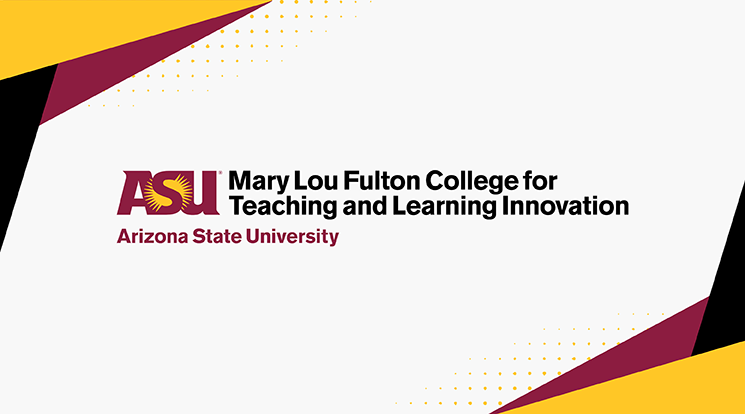Sci-fi stories to deepen the conversation

“We live in uncertain times,” says Punya Mishra, associate dean of Scholarship and Innovation and professor at Mary Lou Fulton Teachers College. He is not, necessarily, referring to the last tumultuous year of 2020, but instead references how emerging technologies, globalization and climate change will affect how all of us live and learn.
For several years, Arizona State University has partnered with Slate and New America for Future Tense Fiction, a series of online discussions on short stories that explore such imminent topics. This month, ASU, specifically the Center for Science and the Imagination and Mary Lou Fulton Teachers College, organized a series of three stories on the theme: learning futures.
The series encompasses three parts: a short story written by an award-winning science-fiction author, a response essay by an expert in the field and finally, a public webinar that brings together the author and expert for a conversation. The first story, “Speaker” by Simon Brown, examines the future in very different ways, specifically between a boy and a hyena.
“Fiction provides us, in these strange times, a unique space and opportunity to use our imagination to explore the possibilities and challenges that lie ahead,” Mishra says. Additionally, says Mishra, “Fiction allows us to explore the ethical and moral landscape of our decisions and how individuals, institutions and organizations confront these issues.”
Iveta Silova, professor and director of the Center for the Advanced Studies in Global Education at MLFTC will be the featured expert aligned with the inaugural essay, “Speaker.” Silova, a member of the Common Worlds Research Collective and co-author of “Learning to Become with the World: Education for future survival,” in which she explored today’s education from the viewpoint of 30 years in the future, was an obvious choice. “The sci-fi world opens an exciting new space for thought experiments about education futures that would have been difficult and even impossible to imagine otherwise,” she says, adding, “Today, we need such space more than ever, because it enables us to question the mainstream status-quo, while exploring and experimenting with education alternatives.”
Silova says she is thrilled the series is opening with “Speaker.” “It’s playful and funny, but forces us to address one of the most fundamental problems of modern education — human exceptionalism — which serves to perpetuate the hierarchical, exploitative, ‘man over nature’ relations. The story helps us reimagine what education would look like if we extended the circle of learning to a more-than-human world and all its species.” she says.
The series continues through March, featuring authors Leigh Alexander and Shiv Ramdas. In addition to these stories, MLFTC recently launched Learning Futures, a podcast hosted by Ronald Beghetto, Pinnacle West Presidential Chair and professor, that offers a conversational, yet scholarly approach to the topic.